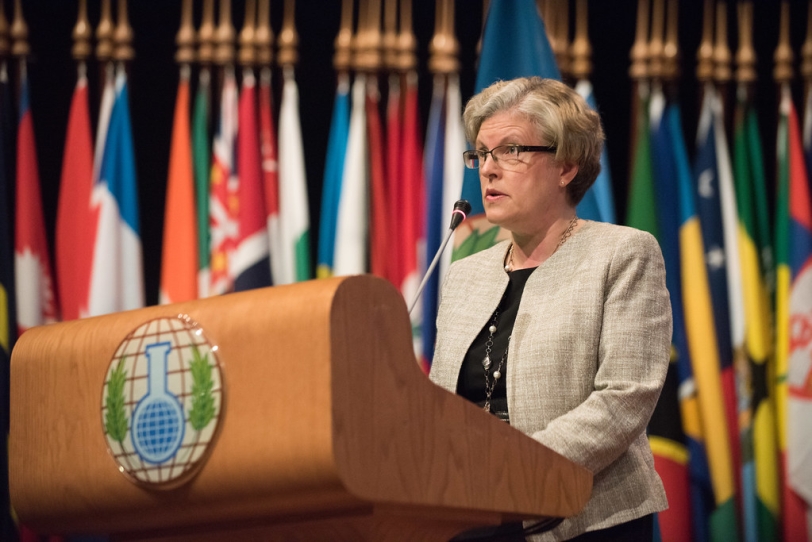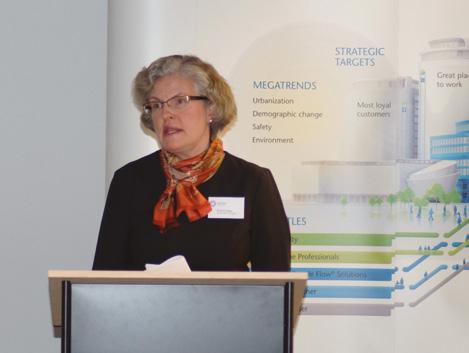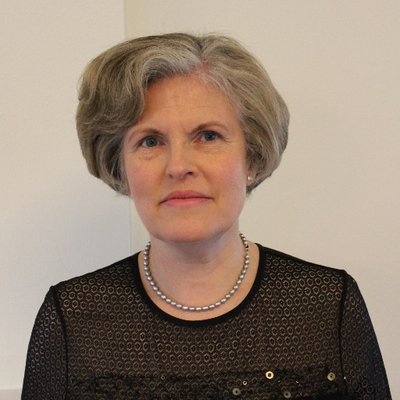
By Chelu Matuzya, Recenlty from Finland
IN an exclusive interview with the Ambassador of Gender Equality in Finland, Katri Viinikka, we delve deep into the nation's remarkable journey towards achieving unparalleled gender equality. With a rich history shaped by social and economic necessities, Finland's path serves as a beacon for global change. From pioneering social security measures dating back to post-World War II to embracing groundbreaking policies, Finland stands as a testament to the power of innovation and inclusion. Join us as we unveil the intricacies and learnings from Finland's commitment to fostering a more equal and empowered
Social Security and Equality
Question: How has Finland achieved such significant progress in gender equality, and what lessons can other countries, particularly Tanzania, learn from your experience?
Answer: There are many reasons for the progress we have achieved. What I would like to highlight is social security as an enabling factor for gender equality. Explore the pivotal role of social security, free warm school meals since 1948, and affordable public daycare since 1973 in driving gender equality in Finland.
Finland was for a long time a poor agricultural country in the first decades of our independence. Engaging women in economic activities was also a necessity, when men were at war, which happened several times during the 20th century. We have had to harness the resources of the whole society, and not only half of them.
Ambassador's Role in Promoting Equality
Question: In your role as an ambassador, how do you contribute to promoting gender equality both within Finland and in your diplomatic relations with other nations?
Answer: I have very close contacts with Finnish CSO’s, especially women’s rights organizations, whose insights are very important for my work. I participate in drafting of key government documents on gender equality with the Ministry of Social Affairs and Health. – At the international level, I co-operate closely with other gender envoys and ambassadors. I gain insights into the ambassador's collaboration with key government initiatives, and international efforts, including the Generation Equality campaign.

Work-Life Balance and Policies
Question: Finland is known for its policies supporting work-life balance. How do these policies contribute to gender equality, and do you see potential for similar approaches in Tanzania?
Answer: Sharing the care is one of the key principles in our gender equality policies, although we are not there yet. The latest reform in Finland enables both parents to have an equal right to 180 days of parental leave and allowance. However, fathers do not fully benefit from their share of the parental leave.
Through the ongoing collaboration with the UN Women and the Tanzanian Government, Finland supports innovative ways to provide solutions to unpaid care work to enable women to participate in economic activities at local level in Tanzania. I hope this is something that can be scaled up and taken up as practice more widely in the country.
IInitiatives for Education and Empowerment
Question: What initiatives or partnerships does Finland engage in to ensure equal access to education for women and girls?
Answer: That is very true. It is crucial that every girl gets educated. That is also why preventing child marriages and unintended pregnancies is so important; they often hinder education of girls.
We have another program in Tanzania, implemented by UNFPA in close collaboration with the Tanzanian government and civil society organizations that works in the area of SRHR fighting early marriages, FGM and intimate partner violence.
Strategies to Address Workplace Disparities
Question: Finland has been a pioneer in empowering women in the workforce. Can you share successful strategies or programs that have been implemented to address gender disparities in various professional sectors?
Answer: This is one of our challenges: both education and labour market in Finland are unfortunately quite segregated. For example, the share of women in STEM jobs is relatively low in international comparison. There are different campaigns to address this, and our lead role in Generation Equality Action Coalition on Technology and Innovation for Gender Equality is actually one of them.
In my opinion, it is crucial to address harmful gender stereotypes already in the early childhood education. Also, the role of student counsellors is very important; they should encourage girls to study more STEM. We also have to address the workplace culture in tech companies in order to ensure that there is no sexual harassment or something which can be described as a ‘bro culture’, which easily alienates women from the tech sector.
Advocacy for Gender Equality in Diplomacy
Question: In your interactions with Tanzanian officials, how do you advocate for gender equality, and what progress or challenges have you observed in this context? Answer: Uncover the ambassador's experiences advocating for gender equality in diplomatic relations, emphasizing shared priorities and collaborative efforts
Women's Participation in Decision-Making
Question: Finland is known for promoting women's participation in decision-making. How is this achieved, and what impact does it have on policy outcomes?
Answer: Finnish women obtained a right to vote in national elections and the right to stand as candidates as early as 1906, even before our independence.
Currently, 46 per cent of our parliamentarians are women. It is very important that women parliamentarians can cooperate closely across party lines. This is how many important reforms have been carried out in Finland, for instance the public day care system back in the 1970’s.
Addressing Gender-Based Violence
Question: The #MeToo movement has had a global impact. How does Finland address issues of gender-based violence, and what measures are in place to support survivors?
Answer: Gender-based violence is one of the most serious human rights problems in Finland. The Council of Europe Istanbul Convention has played an important role also for Finland to intensify efforts, coordination and awareness raising in preventing gender-based violence. Several reforms have been carried out recently, for instance during the previous term of Government the Criminal Code was reformed. The key change is that the definition of rape is now based on consent.
More support centers for survivors of gender-based violence have been established. There are 25 so called Seri Support Centers by the end of this year (2023).
Technology and Gender Equality
Question: Finland has embraced digitalization in various sectors. How does technology contribute to gender equality, and are there specific initiatives promoting women's involvement in the tech industry?
Answer: More women are indeed needed in STEM studies and working in the sector. We need more women in designing technologies, in order to ensure that new technologies are gender transformative. We also need more women in managerial positions in tech companies. We need more women as investors and as start-up entrepreneurs.
Technology provides new opportunities for women to participate. At the same time women and girls face increasingly online gender-based violence, which already now hinders women’s political participation.
Ambassador's Advice for Gender Equality
Question: As an ambassador, what advice would you give to Tanzanian leaders and citizens on fostering a more gender-equal society?
Answer: For me, gender equality needs both structural reforms and political will. As it comes to structural reforms I would like to once again flag social security as an enabling factor. But also, strong political will is needed to carry out the necessary reforms. Role models, such as our former President Tarja Halonen, whom you met during your visit to Finland, have also played an important role in my country. Equally as President Samia Suluhu Hassan serves as an excellent role model in your country and beyond in the region.
Gender equality is a prerequisite for economic growth. It benefits everybody, not only women and girls.

Women's Participation in Decision-Making
Question: Finland is known for promoting women's participation in decision-making. How is this achieved, and what impact does it have on policy outcomes?
Answer: Finnish women obtained a right to vote in national elections and the right to stand as candidates as early as 1906, even before our independence.
Currently, 46 per cent of our parliamentarians are women. It is very important that women parliamentarians can cooperate closely across party lines. This is how many important reforms have been carried out in Finland, for instance the public day care system back in the 1970’s.
Addressing Gender-Based Violence
Question: The #MeToo movement has had a global impact. How does Finland address issues of gender-based violence, and what measures are in place to support survivors?
Answer: Gender-based violence is one of the most serious human rights problems in Finland. The Council of Europe Istanbul Convention has played an important role also for Finland to intensify efforts, coordination and awareness raising in preventing gender-based violence. Several reforms have been carried out recently, for instance during the previous term of Government the Criminal Code was reformed. The key change is that the definition of rape is now based on consent.
More support centers for survivors of gender-based violence have been established. There are 25 so called Seri Support Centers by the end of this year (2023).
Technology and Gender Equality
Question: Finland has embraced digitalization in various sectors. How does technology contribute to gender equality, and are there specific initiatives promoting women's involvement in the tech industry?
Answer: More women are indeed needed in STEM studies and working in the sector. We need more women in designing technologies, in order to ensure that new technologies are gender transformative. We also need more women in managerial positions in tech companies. We need more women as investors and as start-up entrepreneurs.
Technology provides new opportunities for women to participate. At the same time women and girls face increasingly online gender-based violence, which already now hinders women’s political participation.
Ambassador's Advice for Gender Equality
Question: As an ambassador, what advice would you give to Tanzanian leaders and citizens on fostering a more gender-equal society?
Answer: For me, gender equality needs both structural reforms and political will. As it comes to structural reforms I would like to once again flag social security as an enabling factor. But also, strong political will is needed to carry out the necessary reforms. Role models, such as our former President Tarja Halonen, whom you met during your visit to Finland, have also played an important role in my country. Equally as President Samia Suluhu Hassan serves as an excellent role model in your country and beyond in the region.
Gender equality is a prerequisite for economic growth. It benefits everybody, not only women and girls.
Embark on a journey through Finland's commitment to gender equality, where history and innovation converge. The exclusive interview with the Ambassador of Gender Equality has illuminated the nuanced strategies and historical context that underpin Finland's impressive strides. From the early days of post-war necessity to the groundbreaking policies of today, Finland has woven a tapestry of empowerment for all.
As we draw the curtain on this insightful exploration, let Finland's story serve as an inspiration for nations worldwide. May the lessons learned and the challenges overcome stand as a testament to the fact that gender equality is not just a goal but a tangible reality achievable through dedication, innovation, and the unwavering pursuit of justice.
#FinlandGenderEquality #AmbassadorInterview #InclusiveSociety






